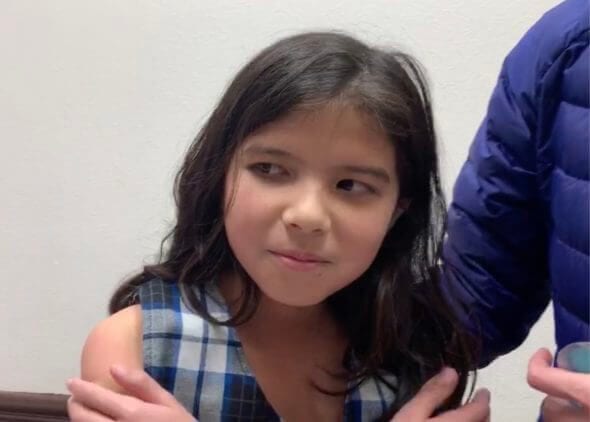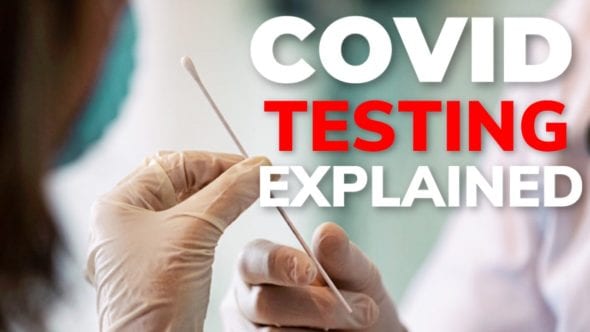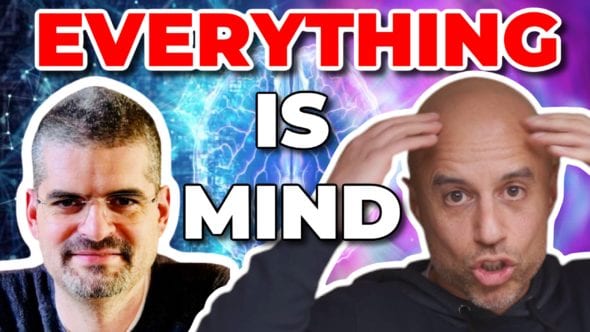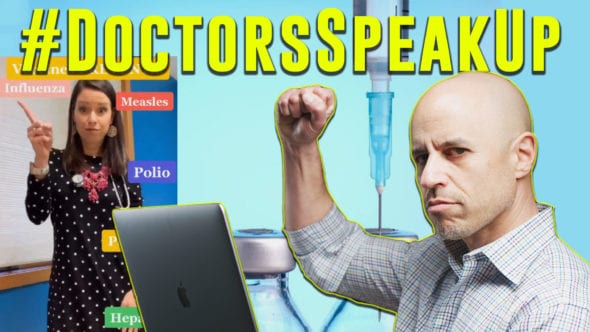AstraZeneca’s vaccine safety has been a concern after European governments paused vaccination campaigns due to concerns about blood clots. Here’s what you need to know.
And here’s the latest update as of 3/19/21 from European regulators.
Full Transcript Below
The AstraZeneca vaccine, what is going on with the AstraZeneca vaccine in Europe? What the news has been reporting and what’s been talked about in the public has been very concerning and I can understand why people would now be very nervous about getting vaccinated, because the question of does the AstraZeneca COVID vaccine cause blood clotting and bleeding in a way that’s been fatal for some people? Is this an unrecognized adverse event of this vaccine that wasn’t detected in the trials? Should the European governments have paused mass vaccination campaigns in order to investigate this further, which they did, and what does it all mean for you, what does it mean for the other vaccines that are approved and available currently for coronavirus?
All right, let’s dig into this and here’s a word of warning. We’re doing this live. This is a nuanced kind of complex topic that does not have a black and white answer. Welcome to reality. That’s just how it is. Which is why we wanna do something beyond what the press soundbites are gonna give you here. We’re gonna dive in deep and we’re gonna also try to take your questions particularly at the end. All right. So here is the deal so far that we know.
The AstraZeneca vaccine is a adenovirus vector vaccine. It uses a chimpanzee adenovirus. It’s a kind of virus that infects chimps but does not replicate in humans, which is good, because what it does is it delivers DNA that, it’s been modified to deliver DNA that encodes and tells the cell how to make the spike protein from the coronavirus. So in a way it’s similar to the mRNA vaccines that we talk about with the Pfizer and the Moderna vaccines, very, very similar in the sense that they all have an end point that’s the same. The production ultimately of messenger RNA in the cell that produces spike protein.
The spike protein is then presented to the immune system, you develop antibodies, et cetera, et cetera, et cetera. So we’ve talked about those in other videos. Now, AstraZeneca is a little special in that it’s using this chimpanzee adenovirus vector that doesn’t replicate in humans. So in order to make it work, you got to give a fair bit of that adenovirus containing the modified DNA that teaches yourselves to make the spike protein. So like, I think it’s 50 billion viral particles that are in the injection roughly.
And I was talking to Paul Offit who’s our resident vaccine expert, world vaccine expert about this earlier today. And so it’s a reasonable dose of virus but it’s all right here and the virus itself doesn’t integrate into cells, it doesn’t replicate itself, it just delivers its DNA and goes and gets degraded. It goes bye-bye. Now in the trials, and by the way, here’s why AstraZeneca vaccine is important. It is refrigerator stable, it’s easier to transport and it’s very inexpensive. So like three to $4 a dose compared to 20, 30 something for the mRNAs vaccines, and I’m not sure what the Johnson & Johnson vaccine costs, or the Novavax which hasn’t been approved yet, but it looks very promising. So it is and was the great hope for the majority of the world.
Something that’s easy to transport and is relatively inexpensive and efficacious. And the trials in Great Britain looked, so far, by the way, in Great Britain about 17 million people have been inoculated with this AstraZeneca vaccine. Remember it was co-developed at Oxford. And they saw no significant safety signal in terms of blood clots, bleeding, et cetera. In the randomized trials, with tens of thousands of people of AstraZeneca, they did not see a signal for significant clotting or bleeding.
In fact, there may have even been less clots in the treatment group than in the placebo group. So by everything that we saw in the role out so far in Great Britain there wasn’t any reason to be concerned. Now, so what happened Europe? Now in Europe, multiple of millions of people have also gotten the vaccine. But the difference is, and there may be several differences, but the difference is it’s in multiple countries, different genetic makeups, different populations, different administrators, et cetera, but also different age groups, perhaps. Because in Great Britain, they sort of prioritized people at the highest risk first, so elderly people, et cetera. So what happened in Europe is they started to see, the regulators started to see, particularly in Germany these cases.
And in Germany, there were seven of them that were reported of women, and these were women in in the German case who are developing, not just blood clots unusual types and patterns of blood clotting that sometimes were also associated with bleeding. And this sort of process where your actual blood clotting components, platelets, compliment, factors like that start to plummet because you clot so much, you actually consume them. And this causes diffused clotting, and then ultimately bleeding.
Now what some of these women were getting were actually these cerebral vein thromboses. These are unusual types of a brain vessel clotting that are actually quite rare. And in a regular population, you might see like one in 1 1/2 million per year. And they’re seeing like seven in a very short period of time in these otherwise young and healthy women. Now then they noticed in the rest of Europe that roughly I think was like around 18 people now have had cases of thrombosis, meaning clot and bleeding. And again, whenever you look at these things you have to say, okay, well, is there a mechanism by which it can happen from the vaccine? Is it at a rate higher than you would expect to occur naturally in a large population that you’re looking at? And therefore you start to determine, okay, well, is there then causality?
And if the vaccine is causing the problem what is the reason? Is it that it’s a particular population that’s at risk that we can identify, or is it that it’s a factor in the vaccine that we didn’t understand? And remember in some of the early polio vaccines, there’s precedent for this, in some of the early polio vaccines every so many hundreds of vaccinations a kid would get polio because the vaccine wasn’t perfected and those were using live viruses that were actively replicating, et cetera, that were supposed to be attenuated, but the process wasn’t perfect. Now this was in the ’50s, right?
With this vaccine, with all the trial data and everything that we had, there’s no reason to believe that this thing would have this sort of side effect. But here now we see these cases. Now, so question one, is this at a rate higher than what you would expect in the population? Now, remember the German authorities looked at it and their expert vaccine safety committee said, ah, this is just enough concerning that we need to pause the whole campaign. And we’re gonna talk about that in a second towards the end of this video. So they were concerned that this was maybe beyond what the background rate was, but we don’t really know what the background rate of this type of unusual clot really is because it’s so unusual. Sometimes it’s under-reported, we just can’t tell, but it’s probably a good idea to pay really good attention because there could be some biological plausibility.
And what that means is that the vaccine uses a viral vector that doesn’t replicate, but you’re injecting the vector. So the question is what could be a cause. Well, we should clarify this. We don’t see this at all in this way with the mRNA vaccines, and we haven’t really seen it with the Johnson & Johnson vaccine and the trial data. But the mRNA vaccines, Pfizer and Moderna have been given to millions of people. And we’re just not seeing that. You sometimes will see ITP, this idiopathic thrombocytopenic issue but even that’s been looked at and it doesn’t seem to occur at a higher rate than what you would expect in a population.
So there’s really not good evidence that the vaccines are causing this. So with this, though, you have this viral vector could it be triggering, because we have precedent for this. There is a syndrome called hemolytic uremic syndrome that is again, a consumptive coagulopathy like this, it’s a little different but there are elements that are similar that is caused by infection sometimes with a type of e-coli, a bacteria, sometimes it’s not known what the infectious cause is, sometimes it’s not knowing what the cause is. So it’s theoretically possible that the difference between the mRNA vaccines and the AstraZeneca vaccine is the vector, is this viral vector. So could it be that this viral vector is doing something now? So that’s one plausible question.
The second question is, and I told you this would be nuanced and a little bit complicated, so bear with me. The second question is who’s the population? Now, when they look at it in the Brits, it was again, 17 million people. They didn’t see this. So what’s different in Europe? Well, in Europe, they’re vaccinating younger people. And again, in these little clusters, mostly women, could it be that women of reproductive age maybe they’re on oral contraceptives which increases your clotting risk. Maybe they were pregnant and didn’t know it, that increases your clotting risk. So there’s a million factors that might go into why you see, if it’s true, if there’s a higher rate in the vaccine group, why it might might be the case that you’re seeing it in Europe but you didn’t see it in the trials and you didn’t see it in Great Britain.
So it’s theoretically possible. But the question is we don’t really know, again, about background rates. So we need to look at it very closely, very, very closely. Now that gets to the question, did the system work? The answer is, yeah. The regulators looked at this, saw the safety signal, physicians reported it and they took action. Now, the question is should they have paused the entire vaccine campaign in order to do this? And this is why this becomes important. Let’s say it’s true. And remember establishing causality for a side effect for a vaccine is difficult. That’s why I think people get confused with the autism thing because the diagnosis of autism happens roughly the same time you get vaccines.
So that correlation confused people. And now it’s been quite clearly demonstrated that there is no causation there. And with this, let’s say it’s true that this vaccine in certain groups causes higher blood clot risks. So let’s say there were 18 cases per tens of millions of people who got the vaccine. You could make a very compelling public health argument and many public health authorities including WHO are making this argument. And the EMA, the European regulatory body is saying the benefits of the vaccine outweigh risks even if this clotting thing pans out to be an issue with AstraZeneca. And the reason is you have a third surge in Europe partially due to the slow uptake in vaccination. AstraZeneca was gonna be a great hope. There are tens of millions of doses there available and the other vaccines aren’t there at that scale enough yet. By pausing the campaign, you could cost many, many, many more lives than the blood clots, if real would cost. And so this is, again a harm reduction calculation that the authorities there made and they erred on the side of shutting down the campaigns. Now, I don’t know the answer to that.
I don’t know if that’s the correct decision. I don’t think we will know until we look at it in retrospect, but that’s the rationale and that’s the thinking where you look at this. Now this then again, gets to the point. Well, okay, so if you had a choice, which vaccine would you take? Well, in many cases you won’t have a choice because the vaccines are limited. But if you had a choice then you would say, okay, well, here are what we see with the risks and benefits with this one, here are the risks and benefits with this one, here’s availability, here’s cost, here’s storage. You have to look at all those things when you’re making the decisions. If you’re asking my intuition and gut on this I would say, well, it’s certainly theoretically possible that there’s an issue here but it’s also fully, equally possible, maybe more likely that there’s not a direct connection but authorities are being careful.
Do you remember when the mRNA vaccine started being used in Europe, in Norway. Norway put out a whole thing saying, hey we think you should use caution in elders, which is of course the most vulnerable population for this thing because they seem to be dying after getting the vaccination. Then they looked back at it, scienced the crap out of it and said, wait, the background rate of death in elders in that group is exactly the same as what we saw with the people who got vaccinated. So it’s actually, again, correlation, not causation. The vaccine didn’t kill those old people. They were going to die. It just so happened they got a vaccine and then they had their death which was gonna happen. So that’s why it’s very, science is not easy, it’s not pretty, it’s messy. Now, what worked well here, science. So we actually looked at it and said, oh, if this is actually a thing we need to know more about this. And then you need to study which populations, if it’s true which populations are at risk so that you can avoid that vaccine in those populations. And that’s really the central premise of all this.
I mean, the AstraZeneca vaccine is important to the world for all the reasons I mentioned. And so you don’t throw it away because we don’t know the answer yet. In fact, you probably wouldn’t throw it away even if the clot risk was increased. You’d put a warning on it, you’d advise patients, they’d make a decision. You give people information. So that’s what I wanted to say. Let’s look at some of your comments. Here’s my favorite. Tamon says COVID is a joke. Welcome to Facebook. God, I love the internet. Let’s keep going and find someone smart. Let’s see. Where are we here with some comments. Tom Mannion on says it was never a legitimate concern. This is about protecting and deflecting the failures of the European Commission and the transnational European vaccine program which has had huge failings. This is politics, which has cost lives.
It’s hugely sickening that politics has played with lives in such a manner. Okay, so Tom is bringing up a point which has been raised, which is, there’s a political concern about this vaccine, which is it was developed by the UK. The UK had some drama about how it was distributing it and Europe and the UK are not exactly the best of friends at this time. There’s this whole Brexit thing but it’s more complicated than that. So the question is, did politics play into the German decision which then leads to a ripple effect? Well, the German said, they’re gonna pause their campaign, while we other European countries, maybe we’ll pause our campaign because we see blood clots too. But I mean, of course are they occurring at a background rate? We don’t know yet. So yeah, that’s possible. But again, I think all of these things are true, but partial.
And the question is to what degree they’re exerting a influence on this is very unclear. And here’s an interesting thing. So Tina, God, man, these comments stream too fast. Hold on, let me scroll back. It’s already gone, Tina. I’m sorry. But she was saying something to the effect of it’s amazing how people freak out about this risk but they don’t freak out about the risk of oral contraceptives. So oral contraceptives are taken by millions of women around the world. They increase your risk of having blood clots, particularly if you’re a smoker. And this is all in the warnings and all that, but people understand the risks and the benefits there. So in the end you have to give people the data and say here are the risks, here are the benefits.
We don’t understand risk well. You’ve got young people hiding in their houses wearing five masks and dressing in a bubble suit, and then you have old people out there partying with their homies. So people just don’t understand risk as it applies to them. They misestimate it constantly. And so that’s a good point. Evelyn gives me some kind words. Let’s see, let’s see. Where are we here? These are a lot of questions. I’m gonna try find one that’s relevant. Ah, Paula Shockley says, we’re seeing embolic events with COVID infections. Okay, let me make this very clear. The risk of getting COVID and having a blood clot due to COVID is vastly higher than the numbers that you saw here, even if they are true, if they’re actually associated with the vaccine.
So the danger of COVID is greater. And in fact, if you’re likely to get a clot from the vaccine, I would speculate, and that’s pure speculation that you’re generally prone to that sort of clotting and a natural infection with COVID might’ve led to a blood clot in you. But again, that’s speculation. But again, it points to this idea, for example, Guillain-Barre, which is a kind of ascending paralysis that has been associated with say a rare association with flu vaccine. Getting infected with natural flu is some order of magnitude more likely to give you the Guillain-Barre. It’s still a tiny risk overall for everything, but you see? So when you think about risk, it’s actually less risky to get the vaccine than it is to get flu. Does that make sense? I told you it’d be a little nuanced but that’s our middle approach. Carrie King says I finally got my first Moderna shot.
Yay, I get to go see my twin soon. Last time I saw him was in recovery from a bilateral lung transplant then COVID. Well, I’m glad cause your twin is high risk and I’m glad that you’ve been vaccinated. Now Fauci today got in a sh**ting match with Rand Paul. This was on TV about Rand saying, hey, when you get vaccinated, you’re pretty much immune. Why are you still telling people to wear a mask? There’s been no cases of people being hospitalized, no deaths reported after vaccination. And I think that’s true. And in fact she said, yeah, but what I’m saying is there are new variants emerged that may make the vaccines less effective. So being cautious still makes sense. Now what’s the answer? Well, it depends on what your moral palate is, it depends on what your tolerance for risk is, it depends on how much masks bother you, it depends on how willing you are to take risks in the world.
It isn’t a black or white answer. Both viewpoints are true, but partial. And it depends on you to make the nuanced decision for you. The last thing I wanna say about this is I think there are a lot of people who are vaccine skeptical with good cause. You should be skeptical of any new therapeutic always. I wish we were more skeptical about the kind of medicines that we throw at people. At big pharmas sort of direct to consumer advertising for stuff. That should make you terribly skeptical because the profit motive is there, the data can be biased, et cetera, et cetera, et cetera. With these coronavirus vaccines, everybody’s skin is kind of in the same game. Many of the people who developed the vaccines are actually gonna be recipients of the vaccines.
I myself was vaccinated with the Moderna times two. I’m fully vaccinated. My family has been. We all have skin in the game. So we question skeptically until our questions are assuaged and then we make our decision based on what our values are. And I think with the AstraZeneca thing, it shows, well, the system works to catch potential side effects if they’re true, science will progress. There’s politics involved as always. But this idea that we’re gonna inadvertently poison masses of people and bunches of people are gonna die just is not backed by reality. So if you’re vaccine skeptical, watch the show and then you can make a decision. AstraZeneca, okay, I don’t know, mRNA vaccines, well, I watch these other videos, I’m educated on it. Now I can make a decision one way or the other. And in no way, what I tell you, oh no, everything is safe and effective a hundred percent, ’cause it’s not.
There’s no black and whites in the world. So I hope you take that away that you can think about these things rationally. Now, speaking of all that, please, if you feel so inclined we are in your pocket on this show. So if you support our show via PayPal or our supporter tribe, it’s deeply appreciated and it allows us to be independent and to bring this stuff to you. But even more than that if you share this video with people who’ve had concerns, this will help to provide information, hopefully in a non-judgemental, non-biased way, which I do fall into the judgmental biased category from time to time. And for that, I am both proud and ashamed. All right, guys, I love you until next time we is out.
Category
- The ZDoggMD Show (817)
- Featured Videos (189)
- Doc Vader (142)
- Against Medical Advice (128)
- Medical Humor (95)
- Public Service Announcements (87)
- Music Parodies (74)
- Nurses (59)
- Meditation (45)
- The VPZD Show (38)
- ZVlogg (36)
- ZTalks (28)
- ZBlogg (24)








